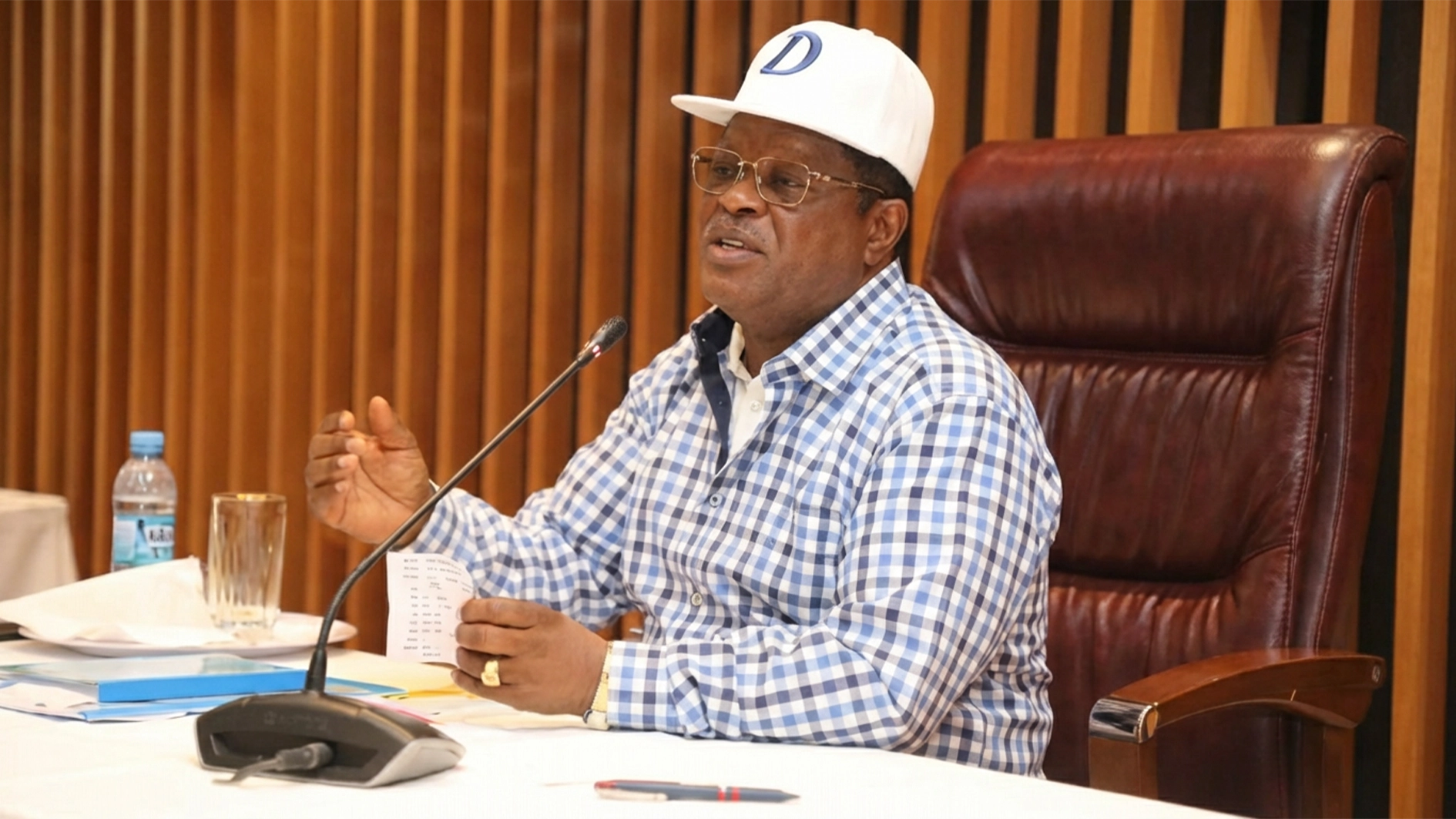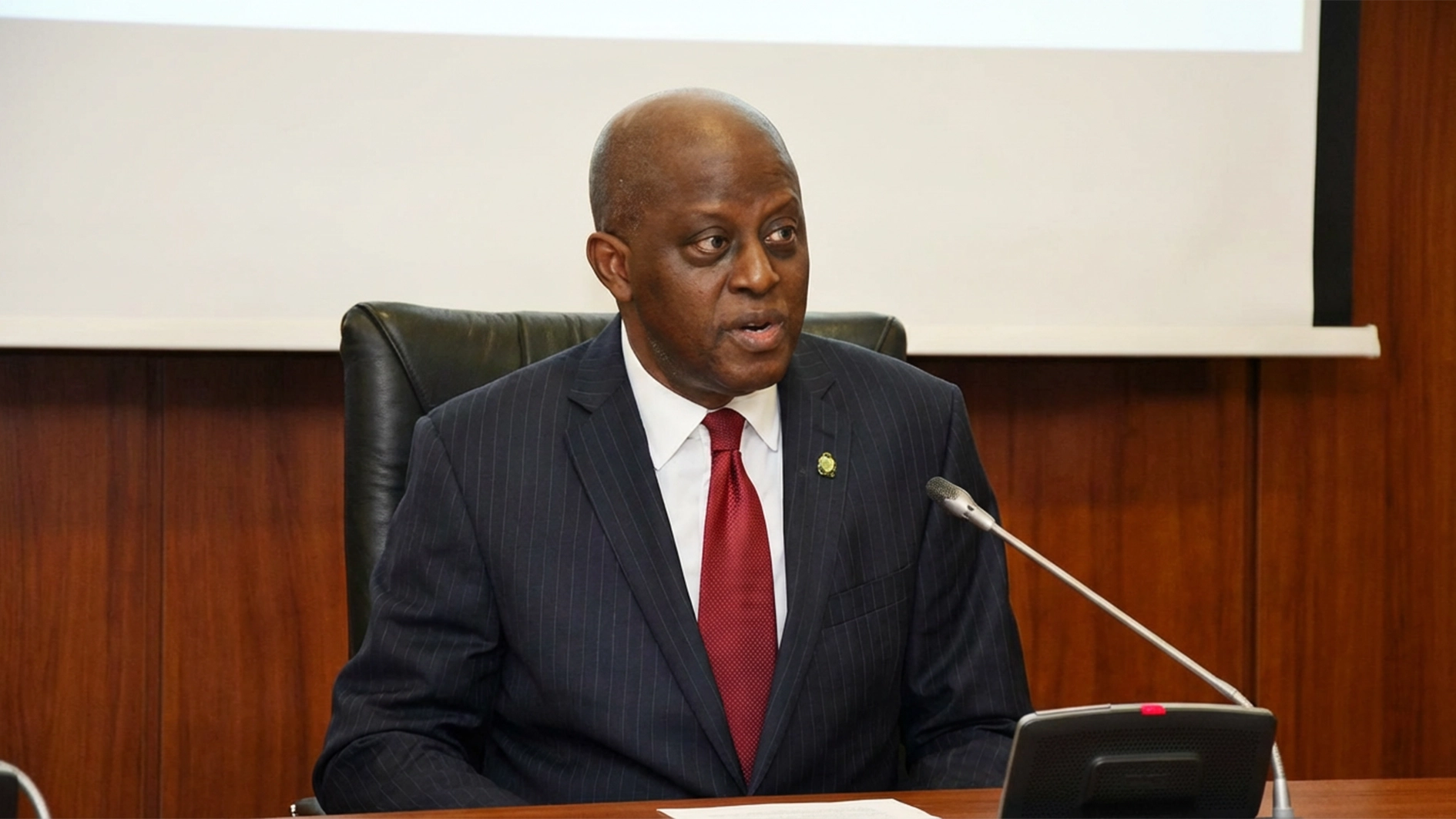• Bandits abduct 31 in Niger, Bwari; one feared dead in attack on Ngige’s convoy
• Ezekwesili flags defence corruption behind rising insecurity
• ‘Washington pledges intelligence, equipment support for operations’
ABDUCTIONS and armed attacks intensified across several states yesterday as President Bola Tinubu approved the Nigerian contingent for the new U.S.–Nigeria Joint Working Group, a move aimed at boosting security cooperation even as concerns persist over corruption, underfunding and failures weakening frontline operations.
The establishment of the Working Group followed a recent high-level engagement in Washington, D.C., led by the National Security Adviser (NSA), Mallam Nuhu Ribadu.
The Nigerian team comprises senior officials drawn from key security, intelligence, and diplomatic institutions. Members include the Minister of Foreign Affairs, Yusuf Maitama Tuggar; Minister of Defence, Mohammed Badaru Abubakar; Minister of Interior, Olubunmi Tunji-Ojo; Minister of Humanitarian Affairs, Dr Bernard M. Doro; Chief of Defence Staff, Gen. Olufemi Oluyede; Director-General of the National Intelligence Agency, Mohammed Mohammed; and the Inspector-General of Police, Kayode Egbetokun.
President Tinubu urged the delegation to work closely with their US counterparts to ensure the effective implementation of all agreed areas of cooperation.
The Nigerian delegation held strategic discussions with officials of the US Congress, the White House Faith Office, the State Department, the National Security Council, and the Department of Defence.
During the engagements, the Nigerian side dismissed allegations of genocide, maintaining that violent attacks affect citizens across religious and ethnic lines. It warned that mischaracterising the crisis as targeting a particular group distorts reality, fuels division, and feeds extremist propaganda.
U.S. officials reaffirmed their commitment to supporting Nigeria and signalled readiness to scale up assistance across several fronts. This includes expanded humanitarian support for communities affected by violence in the Middle Belt and enhanced technical backing to strengthen early-warning and rapid-response capabilities.
Washington also pledged deeper intelligence cooperation, accelerated processing of defence equipment requests, and the possible provision of excess defence articles, subject to availability, to bolster ongoing operations against terrorists, bandits, and violent extremists nationwide.
Both countries agreed to activate a non-binding cooperation framework immediately and formally establish the Joint Working Group to coordinate follow-through on commitments.
The Nigerian delegation reiterated the Tinubu administration’s commitment to civilian protection, accountability, and prioritising the safety of vulnerable communities in security operations.
According to a statement by the Special Adviser on Information and Strategy, Bayo Onanuga, the week-long engagements helped correct misconceptions about Nigeria’s security landscape, rebuild trust, and reinforce a solution-focused partnership between Abuja and Washington, particularly in addressing violence in the Middle Belt.
Other members of the delegation included the Attorney General of the Federation, Prince Lateef Olasunkanmi Fagbemi; Chief of Defence Intelligence, Lt-Gen. Emmanuel Parker Undiandeye; Ambassador Ibrahim Babani, Director of Foreign Relations at ONSA; and Ms Idayat Hassan, Special Adviser to the NSA.
Bandits abduct 31 in Niger, Bwari; one feared dead in attack on Ngige’s convoy
MEANWHILE, bandits have abducted 24 farmers, including pregnant women, in a fresh attack on the Palaita community in Erena Ward, Shiroro Local Government Area of Niger State.
Residents said the attackers struck at about 2:00 p.m. on Wednesday while people were harvesting rice. Despite Palaita being just five kilometres from a military base in Erena, the gunmen reportedly fled with the victims before troops could respond.
In a separate incident earlier that day, another group of armed men invaded the Kakuru community, also in Erena Ward, assaulting a blind resident and severing his right hand after taking a mobile phone from him. The attack occurred at about 8:00 a.m., when other villagers had already gone to their farms.
The victim reportedly told the assailants that the phone belonged to a neighbour who was not at home. Angered by the explanation, the attackers seized the device and amputated his right hand. He is said to be receiving first aid at a patent medicine shop in the Kuduru community.
The Niger State Police Command Public Relations Officer, Wasiu Abiodun, confirmed the incident, saying efforts were ongoing to rescue those abducted.
“On February 26, 2025, at about 8:00 p.m., a report was received indicating that suspected armed men abducted about ten persons from Angwan-Kawo and Kuchipa villages of Shiroro Local Government Area,” he said. “Effort is being made to rescue the victims.”
The attack comes less than a week after gunmen kidnapped more than 300 students and teachers from St Mary’s Catholic School in Papiri, Niger State, amid rising insecurity across northern states.
Also, barely a week after a police officer was killed in Guto, the Bwari Area Council has suffered another attack, with bandits abducting six young girls and a 16-year-old boy during a late-night raid on Gidan-Bijimi in Kawu ward.
The attack occurred around 9:47 p.m. on Wednesday when armed men wielding AK-47 rifles stormed two homes, firing repeatedly into the air before escaping with their victims.
Kawu, which shares a boundary with Kaduna State, sits close to the Gidan Dogo and Kweti forests, long-established transit routes and hideouts for criminal gangs operating along the FCT–Kaduna corridor. Gidan-Bijimi itself lies near Marke village, where criminal activity has surged in recent months.
The latest incident follows an attempted mass abduction in Guto, another boundary community in Bwari, where the FCT Police Command reported that about 30 attackers targeted a family. Two gunmen were killed in that operation, while a police officer lost his life.
A resident, Suleiman Shuaibu, confirmed that the abducted girls were between 17 and 23 years old. “I got a call around 9:53 p.m. that bandits had invaded the village. They abducted six young girls. Unfortunately, my cousin sister is among the victims,” he said, adding that a teenage boy was also taken.
He said members of the local vigilance group attempted to confront the gunmen but retreated because of the attackers’ superior firepower. Several residents fled into nearby bushes while others hid indoors until dawn. As of Thursday, there had been no contact from the kidnappers, and police had yet to officially confirm the incident.
The abductions have intensified concerns over worsening insecurity in the Bwari Area Council, with renewed calls for stronger protection across communities bordering Kaduna and Niger states.
In response to rising anxieties, the Federal Capital Territory Administration on Wednesday announced new security measures following an expanded meeting of the FCT Security Council chaired by Minister Nyesom Wike.
FCT Commissioner of Police, Miller Dantawaye, said the council had fully activated Operation Sweep, a multi-agency security response revamped to address emerging threats. He said the operation now covers four major sectors, including Gwagwalada, Bwari and two corridors stretching across the city centre from Berger and Wuse through Karu, Mararaba, Karshi and Orozo.
He added that the minister had provided “adequate logistics” for the joint deployment of personnel from the police, military, DSS, NSCDC, FRSC, Immigration Service, Correctional Service and other agencies.
Despite these measures, Wednesday night’s attack highlights the vulnerability of remote communities and the growing boldness of criminal groups inching closer to the capital. Residents say they now live in constant fear and call for urgent action to rescue the victims and halt what many described as a drift into daily terror.
In another incident, a woman was feared dead after gunmen dressed in police and army camouflage opened fire on the convoy of former Anambra State governor Dr Chris Ngige along the Nkpor–Nnobi Road in Idemili North Local Government Area.
The woman, who had reportedly stepped out of her hairdressing salon, was said to have been hit by bullets after she was spotted recording the incident on her phone. She died on the spot. A teenage shop owner was also injured while attempting to observe the commotion. He was later rushed to the hospital and is expected to undergo surgery to extract bullets.
The attackers, who ambushed the convoy on Wednesday, were said to have run into the pilot vehicle and immediately opened fire. Security operatives attached to the convoy responded, resulting in a brief gun battle. The pilot vehicle was riddled with bullets, and the lead escort sustained gunshot wounds. His weapon and uniform were taken by the fleeing gunmen.
Ngige, a former Minister of Labour and Employment, was not in the convoy at the time of the assault, a fact later confirmed by his media aide, Fred Chukwuelobe. The injured escort leader has reportedly undergone surgery and is responding to treatment.
The Anambra State Police Command confirmed the incident, stating that one police operative sustained injuries but is stable. The Command said the convoy vehicle that came under fire had been recovered and taken into custody for investigation. It added that a coordinated state-wide manhunt for the attackers had been launched.
Police further revealed that the same armed gang had earlier snatched a white Mercedes-Benz SUV but abandoned it during a separate pursuit involving tactical operatives from Awka, Akwuzu and Enugu-Ukwu. The vehicle has since been recovered as security personnel step up efforts to track down the fleeing gunmen.
Ezekwesili says corruption-driven ‘war economy’ worsening insecurity
Former Minister of Education Obiageli Ezekwesili yesterday warned that corruption in Nigeria’s security sector has entrenched a “bloody, thriving and lucrative war economy”, worsening insecurity despite rising defence spending.
In a post on X, she wrote: “Corruption kills. Has it not been a wonder that the more money spent on ‘fighting insecurity’ in our country, the worse insecurity has degenerated — the less safety, more kidnappings and killings?”
She argued that the absence of transparency and accountability in defence expenditure over the past 15 years, coupled with weak public financial management, has enabled massive waste. “What precisely have the budgeted and extra-budgetary spendings (like the infamous $2.1 billion of 2014) on ‘fighting insecurity’ achieved for Nigerians in the last fifteen years?” she asked.
Ezekwesili urged Nigerians to read an excerpt from a study by Transparency International (TI), describing it as the world’s leading anti-corruption organisation with extensive global expertise. She noted that TI’s Defence and Security unit (TI-DS) partnered with the Civil Society Legislative Advocacy Centre (CISLAC) in 2017 to produce a report titled ‘Weaponising Transparency: Defence Procurement Reform as a Counterterrorism Strategy in Nigeria.’
Quoting the report, she highlighted TI-DS’s findings that kleptocratic capture of the defence sector has undermined Nigeria’s security. According to the study, despite sharp increases in ad hoc defence spending between 2011 and 2015, frontline operations in the northeast “remained stubbornly under-resourced”, with soldiers facing shortages of equipment, materiel and pay.
The report said these failures “undoubtedly cost lives”, citing military sources who attributed the suspected deaths of 83 soldiers in an October 2016 Boko Haram ambush to equipment shortfalls and low morale linked to corruption among Army leaders.
It also referenced accounts of senior officers withholding ammunition and fuel from frontline troops, forcing soldiers to flee during attacks. One eyewitness recalled how, in November 2014, fleeing soldiers begged civilians for clothes to escape Maiha, Adamawa State, after discarding their weapons.
TI-DS further cited a 2015 BBC interview where a soldier described being left to confront heavily armed Boko Haram fighters with only AK-47 rifles and dilapidated four-decade-old armoured vehicles because superiors refused to resupply them.
The report added that corruption has weakened equipment maintenance and training budgets, creating constant demand for new procurement and opening “further new opportunities for procurement-related fraud”.
Ezekwesili also shared findings from a December 2015 court martial, where the death sentences of 66 soldiers convicted of mutiny were commuted after evidence emerged that funds meant for weapons and equipment had been stolen, leaving them ill-equipped to fight the insurgency.






